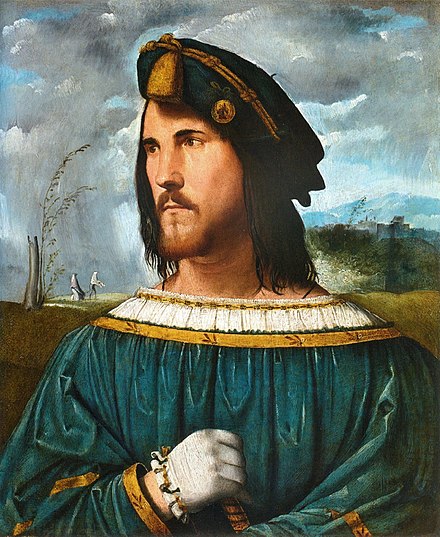Feel free to mention Shaka Zulu & Charlemagne in no particular order.
LOL, Shaka Zulu...
OK, well, for simplicity's sake I'm going to apply Michael Mann's two-axis conception of state power, which he laid out in his seminal 1984 essay
The Autonomous Power of the State. Essentially this conceives of 'power' as the state's ability to enforce it's will in two different ways:
1) Despotic Power: This is the ability of the state to do
what it pleases. Its a kind of measure of impunity. Having a
lot of despotic power would mean that you are able to act arbitrarily without reference to laws or customs, &c. Having little would mean that you would be forced to act within tightly defined parameters, e.g. a functioning independent judiciary to curtail the power of the executive

wink

2) Infrastructural Power: This describes essentially the
reach, breadth and depth of state power. Is the state able to
get to you? It's no good having
de jure power of life and death over your subjects if you can't actually
de facto enforce it; this is infrastructural power.
So we see the pattern in preindustrial states of having more despotic power and less infrastructural power, and modern states having absolutely vast amounts of infrastructural power and comparatively little despotic power (at least in the West for the most part). This theory tracks well to things like the development of crime and punishment, where
deterrent (think of the death penalty) is used more in states with with lower infrastructural power, and gradually it becomes less and less necessary as the certainty of arrest (infrastructural power) increases. You don't need a severe deterrent like the death penalty if you
definitely will get caught and prosecuted. This is why the US is weird in holding on to the death penalty in so many places... in structural terms, it
shouldn't need it because it has vast amounts of infrastructural power. It's very inefficient in that regard and a bit anomalous.
Now of course the implication for our purposes is that we need to find an individual who had access to lots of infrastructural power, but who could also
use it arbitrarily (despotic power). Implicit in the calculus of infrastructural power is that the more people it reaches, the more of it there is, while despotic power is best thought of as a kind of multiplier for infrastructural power. So... we can look at this in two ways: I) in absolute terms, or ii) in historical relative terms.
Let's take the first of these:
Absolute Power
There can be no doubt that the infrastructural power of the modern bureaucratic state is absolutely mind-boggling and historically unprecedented. This means that the only candidates for the top spot in terms of absolute values
must come from the last couple of centuries. When compared with the axis of despotic power, we can be pretty certain that what we're looking for is
a dictator in control of a large, centralised bureaucratic state. Here are some candidates:
I) King George V/Bonar Law: British Empire at its peak in 1922; 458 million people* (I'll come back to this)
ii) Stalin: USSR during WWII; c.170 million people
iii) Adolf Hitler: Third Reich (inc. conquered territories); no idea, c.100 million people
iv) The leader of the PRC at any point in it's history; c.600 million to 1.379 billion people
I think it's pretty clear... by these metrics it's either Mao or Xi Jingping, depending on how much weight you give to despotic power, but theoretically Xi
could probably exercise the same kind of despotism as Mao, at least for a while, so let's say him.
*The British are here as an example of the limitations of having low despotic power, though of course
during wartime, the despotic power of democratic states increases exponentially, meaning that there's a case for the WWI British to have been the most powerful ever, if we consider the coercive power of the Royal Navy, which leads me to my next point...
Theoretically (this is a bit Clausewitzian I admit), if the United States were able to enforce it's will upon China using, say, it's blue-water Navy, then a case could be made for Donald Trump being the most powerful man who ever lived in absolute terms. However, we must consider the power that China holds over the US in terms of both debt and manufacturing, so the reality of this scenario is that the US is in, or is rapidly moving towards, a balance of power situation with China...
Now, roll back the clock to when the US wasn't so dependent upon Chinese manufacturing, and you have a case for arguing that the President of the United States was the most powerful office that ever was between 1945 and something like 1980,
because they could exercise despotic power abroad. Immediately after WWII, the United States
could do anything it wanted, anywhere in the world, and it did. It remade the world in its image, completely and absolutely. This is doubly the case when considering the period of US nuclear monopoly (1945-9), meaning that, in my view...
In absolute terms, the most powerful man who ever lived was President Harry S. Truman
View attachment 48140
So, what about in historical relative terms? Same guy; Harry Truman. No one else even comes close, unless you put a huge amount of weight into despotic power, in which case it's Xi.
Charlemagne... The Frankish Empire was pretty orderly, actually, and it's collapse ushered in feudalism when their system of public office went to shit and degenerated into aristocracy, but Charlemagne himself wasn't particularly powerful in either the infrastructural or despotic axes.
'Shaka who?' said the Eurocentrist

Other than that, we're looking at despots of either the Roman or various Chinese Empires for this magic mix of despotic & infrastructural power. So... perhaps Nero or
one of these guys.


